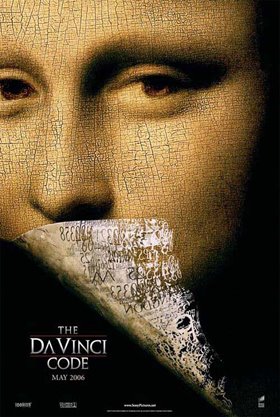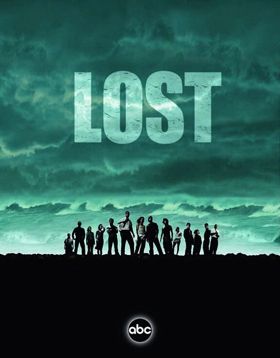 I was anticipating a leisurely Saturday afternoon at the cinema. Having left home in good time, I drove to Westfield Bondi Junction to discover utter chaos in the carpark. After twenty minutes of dizzying circling in a desperate attempt to find a parking space, I looked at my watch and questioned whether I would ever make it to see X-Men Origins: Wolverine.
I was anticipating a leisurely Saturday afternoon at the cinema. Having left home in good time, I drove to Westfield Bondi Junction to discover utter chaos in the carpark. After twenty minutes of dizzying circling in a desperate attempt to find a parking space, I looked at my watch and questioned whether I would ever make it to see X-Men Origins: Wolverine.
I finally found a spot somewhere in the earth's outer core and did that awkward-looking half-walk-half-run to the movie theatre. Only then did I realise I'd still made it to the cinema in time to catch the last twenty minutes of advertisements before the film began. Enduring countless commercials, each more irritating than the last, I found myself once again wondering whether I would ever see Wolverine.
Sadly, my journey to the cinema contained more uncertainty and more suspense than the entirity of the latest instalment of the X-Men cashcow.
The greatest hurdle of the origin film is to surprise the audience with a story of which they already know the outcome. In the case of X-Men Origins: Wolverine – a prequel – it's a particularly lofty barrier, given we've already seen Hugh Jackman's sideburned mutant slash and scream his way through three earlier (or later, I guess) films of varying quality.
Director Gavin Hood, from a script by David Benioff and Skip Woods, sadly seems to skip over possibly the most compelling period of James Logan's life in a gritty credits sequence that sees the ill-tempered mutant fighting his way through the 20th century's numerous wars alongside his fiery half-brother Victor Creed (Liev Schreiber). Instead, the bulk of the film is concerned with Logan's involvement with a group of forgettable mutants led by Danny Huston's equally forgettable William Stryker (so coldly played by Bryan Cox in the excellent X-Men 2) and his relationship with his half-brother.
In hiring Hood, who helmed the terrific Tsotsi, I'd hoped for a more cerebral superhero film, akin to Christopher Nolan's potential-filled Batman Begins. Unfortunately, Wolverine is lumbered with the kind of overwhelming CGI, over-choreographed fight scenes and underdeveloped characters that are the hallmarks of lesser comic book adaptations (see: Fantastic Four, Daredevil, Spider-man 3). Even Brett Ratner's much-maligned X-Men: The Last Stand contains more panache than that which is on display here.
The film's key moment, naturally, comes when Logan agrees to participate in the surgery that causes his skeleton to be bonded with an indestructible metal called adamantium. Or something. But having already seeing Jackman (and Troye Sivan as a young Logan) brandish his claws and scream skywards several times before this point, the only real transformation the character appears to undergo is aesthetic.
Suitably, this is Jackman's film, and he does a fairly admirable job of carrying it. Unlike the previous films' reliance on an ensemble cast, only Schreiber and Huston could be considered to have supporting roles here, with the remainder of the picture's characters reduced to mere cameos. Lost stars Dominic Monaghan and Kevin Durand make brief appearances as Bradley (a mutant who can manipulate electricity) and the Blob (clue's in the title) respectively, while Lynn Collins plays Wolverine's romantic interest. Ryan Reynolds, who appears in roughly five minutes of film as Deadpool, is reportedly being considered for his own spin-off, though there's little indication here as to why it would be a worthwhile investment of anyone's time. Only Taylor Kitsch leaves any kind of impression with his sassy interpretation of Gambit.
A post-credits scene points towards an already-announced sequel that will take the character to the Far East where he will hopefully meet characters more interesting and have adventures more gripping than those presented here. Whichever film comes first – be it this prequel-spin-off-sequel, the Deadpool flick, or the infinitely more appealing Magneto spin-off – it's apparent that the X-Men franchise needs to undergo a more exhaustive transformation than that which Wolverine endures here.
 The scent of fresh popcorn wafts through the cinema as a throng of people march their way across the unnaturally sticky floor before getting settled into their seats and noisily wrestling with bags of M&Ms. Everyone's wallets are (a frankly absurd) $16.50 lighter, but no-one is complaining. It could only mean one thing: Summer Blockbuster Season™ is here!
The scent of fresh popcorn wafts through the cinema as a throng of people march their way across the unnaturally sticky floor before getting settled into their seats and noisily wrestling with bags of M&Ms. Everyone's wallets are (a frankly absurd) $16.50 lighter, but no-one is complaining. It could only mean one thing: Summer Blockbuster Season™ is here! In
In  To celebrate Lost's 100th episode – last week's terrific Faraday-centric "The Variable" – I briefly entertained the idea of writing a post entitled "100 reasons why you and everyone you know and everyone they know should watch Lost".
To celebrate Lost's 100th episode – last week's terrific Faraday-centric "The Variable" – I briefly entertained the idea of writing a post entitled "100 reasons why you and everyone you know and everyone they know should watch Lost".